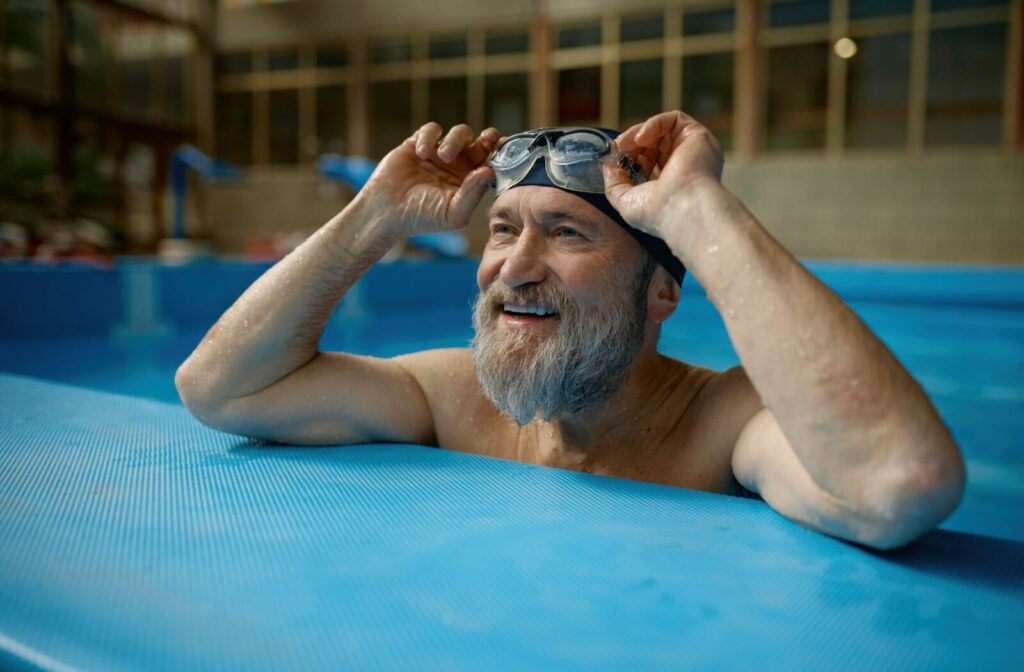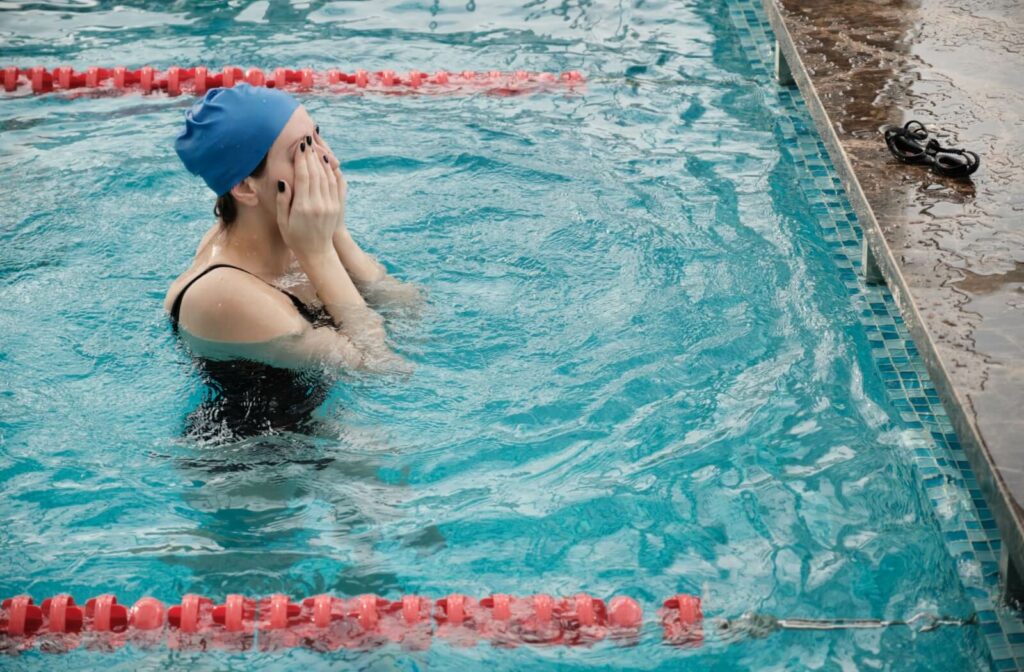Ever felt the sting of chlorine in your eyes after a swim? Now imagine that discomfort trapped under a contact lens, along with bacteria and chemicals. Swimming with contact lenses might seem convenient, but it can expose your eyes to harmful microorganisms and chemicals that lead to serious issues, from painful infections to vision-threatening corneal ulcers.
At Tree City Eye Care, protecting your eyes means knowing when to keep your lenses out of the water. For those who love water sports or swimming, options like prescription goggles or daily disposable lenses you can toss after a swim can help.
Why Swimming with Contact Lenses Is Risky
Swimming with contact lenses introduces your eyes to water that can be teeming with bacteria, viruses, and chemicals. These contaminants can cling to your lenses, increasing the risk of infection and irritation. Contact lenses aren’t designed to come into contact with water, whether it’s from a swimming pool, the ocean, or a natural body of water.
Additionally, swimming in lenses can lead to lens swelling, discomfort, and distorted vision as they absorb water. Over time, this can compromise your eye health and the integrity of your lenses.
What Happens When You Swim with Contacts?
When contact lenses meet water, several risks emerge. Here’s what could happen:
- Eye infections: Water carries harmful microorganisms. One such organism is Acanthamoeba, commonly found in pools, hot tubs, and lakes. It can attach to your lenses and infect the cornea, causing Acanthamoeba keratitis, a condition that’s painful and can lead to permanent vision loss.
- Lens dislodgement: Water pressure can cause soft lenses to shift and lose their position on the cornea, leading to blurred or double vision.
- Chemical irritation: Chlorine in swimming pools and salt in the ocean can irritate the eyes by binding to your lenses, causing discomfort and redness.
- Swollen lenses: Soft contact lenses can absorb water, causing them to swell. This can lead to blurry vision and create a breeding ground for bacteria.
Can Water Damage Contact Lenses?
Yes, water can damage contact lenses. Soft lenses, in particular, are porous and act like tiny sponges, soaking up water and all the contaminants in it. This can lead to:
- Warped lenses that may no longer fit properly or comfortably.
- Buildup and deposits that reduce lens clarity and introduce potential irritants to the eye.
- Decreased lens lifespan due to structural damage caused by water exposure.
How to Protect Your Eyes While Swimming with Contact Lenses

If you must swim with contact lenses, there are steps you can take to reduce risks:
- Wear goggles: Invest in a pair of watertight swim goggles to shield your eyes from water exposure. Goggles can help create a physical barrier, keeping contaminants away from your lenses.
- Use daily disposable lenses: If swimming with contacts is unavoidable, use single-use daily lenses. Discard them immediately after swimming to minimize the risk of infection or buildup.
- Clean lenses thoroughly: If your lenses come into contact with water, disinfect them immediately using a peroxide-based cleaning solution recommended by your eye care professional.
- Limit water activities: Whenever possible, remove your lenses and rely on glasses for water-related activities.
Safe Alternatives to Swimming with Contacts
For frequent swimmers who want a safer solution, these alternatives can enhance your swimming experience:
- Prescription swim goggles: These provide clear vision without the risks associated with contacts and water exposure.
- Orthokeratology (Ortho-K): This treatment reshapes your cornea overnight using specialized lenses, allowing you to enjoy clear vision during the day without wearing contact lenses or glasses.
- LASIK Surgery: Consider refractive surgery for a more permanent solution to vision correction, eliminating the need for lenses.
What to Do if You Accidentally Swim with Contacts
If you accidentally jump into the water with contacts, follow these steps to minimize risks:
- Remove the contacts immediately: Take them out as soon as possible to prevent prolonged exposure to water.
- Clean your lenses: If they are reusable, disinfect them thoroughly using a solution approved by your optometrist.
- Monitor your eyes: Watch for symptoms like redness, pain, or blurred vision, which could indicate an infection.
- Visit your eye doctor: Schedule an appointment to rule out any serious complications and receive appropriate care.
Expert Contact Lens Care at Tree City Eye Care
At Tree City Eye Care, we understand that your eyes deserve the best care possible, especially if you wear contact lenses. Whether you’re a first-time lens user or need a specialty contact lens solution, our team of experts is here to help. We offer a wide range of contact lens services, including custom fittings, orthokeratology lenses, scleral lenses, and more.
Don’t take risks with your eye health. Book an appointment with Tree City Eye Care today to discuss your contact lens needs and explore safe, effective solutions for every aspect of your life, including swimming.


